The Irrawaddy Magazine |
- Lashio Stable but Tense after Yoma Bank Bombing
- Evolution of Myanmar Art On Display in New Exhibit at National Museum
- Anti-Corruption Commission Hands List of 12 Suspects to Police
- U Ko Ni Murder Suspect Freed on Bail
- Banned UN Envoy, Rohingya Activists to Join Conference on ‘Myanmar Genocide’
- Floating Island: New Home for Rohingya Refugees Emerges in Bay of Bengal
- Two Dead, 22 Hurt by Bomb Blast in Shan State
- Civilian Witness Contradicts Police on Reuters Reporters’ Arrest — Defense
- Govt Asks Buddhist Leaders to Act Against Badly Behaved Monks
| Lashio Stable but Tense after Yoma Bank Bombing Posted: 22 Feb 2018 07:04 AM PST Local residents in Lashio reported that the situation there had stabilized Thursday following a bomb blast at a Yoma Bank branch on Wednesday that killed two people and wounded 21, though many residents expressed concerns about security as authorities conducted checks and patrols around the town in northern Shan State. A witness to the blast, U Kyaw Aung, told The Irrawaddy, "Just after I parked my car, I was walking toward the public market when I heard a loud blast. The windows from the bank were blown out and there was glass all over the street. The windows of my car were also shattered." The market was busy as usual on Thursday, he said, adding there was no sign of tightened security inside the town. However, local residents reported that authorities were checking vehicles on roads leading in and out of the town, and had tightened security in the surrounding areas. Lashio police said Thursday that the bomb appeared to be a locally made device. Two women were killed in the blast. Of the 21 people injured, four men and two women remained in hospital Thursday, said Lashio police officer Colonel U San Win. According to U San Win, the bomb had been placed against a wall of the bank building. When it detonated, it partially destroyed the wall, damaging the interior of the bank and causing casualties, he said. Both Yoma Bank and Ayeyarwady Bank were struck by the blast, but the latter suffered only minor damage. While the situation appeared to have stabilized, some local people said they didn't feel secure in the town and were thinking about leaving in case other blasts occurred. Authorities said they were investigating who was responsible for the bombing, but had yet to release any information on possible suspects, saying only that they were preparing charges. The Myanmar Army (Tatmadaw) said a month ago it had distributed flyers warning local residents that the Kachin Independence Army and Ta'ang National Liberation Army were planning a bombing campaign against the city. Public places, government buildings and bus stations were being targeted, and the KIA and TNLA had infiltrated about 10 and 20 people into the town, respectively, the Army said. Maj. Khaing Zaw Win from the Military Security Department told The New York Times in a report published Wednesday that the Tatmadaw had received information that the two armed groups had prepared bombs a long time ago, prompting the distribution of the fliers a month ago. TNLA spokesman Colonel Tar Aike Kyaw denied the accusation when contacted by The Irrawaddy. "It is not our policy to bomb public properties. We were not involved in it," Col. Tar Aike Kyaw said. He said the Tatmadaw fliers referred to by Maj. Khaing Zaw Win were distributed last year, not a month ago. The Tatmadaw was using Wednesday's blast to revive its claims against the armed groups on social media, he said. Police and Army personnel were patrolling around the town in vehicles and army tanks night and day to maintain security in Lashio. Some residents were asking how the KIA and TNLA could have managed to stage an attack on a bank. The TNLA spokesmen echoed these comments, saying, "They [officials] have tightened security in this area as it houses government and police buildings. So how could we stage such an attack?" Col. Tar Aike Kyaw said. "It could be a personal dispute or it could be politically motivated, with the aim of threatening the people in the town," Col. Tar Aike Kyaw said. The Army and the government typically point the finger at rebels when there is a bomb blast in the country. However, neither have issued any official statement regarding who is to blame for the bombing. Meanwhile, the Army and police investigation is ongoing. Local residents offered various theories on the bomb blast. One resident said that because the conflict in Arakan had quietened down recently, the Tatmadaw may be planning to launch a big military offensive in northern Shan State. Therefore, they planted the bomb to make it look like the work of the rebels, according to this theory. Others believed the bombing was related to a recent drug raid in Kutkai in which Army and police seized nearly 10 billion kyat worth of illegal drugs. Some locals even suggested Yoma Bank was bombed because it failed to pay taxes to the rebel groups. Other Lashio sources downplayed this idea, saying all banks based in northern Shan have to pay taxes to rebels, with the exception of Myanmar Economic Bank. Lashio is home to communities of Shan, Palaung, Wa, Kokang, Kachin and Burmese. Just a four-hour drive from the town of Muse on the Chinese border, Lashio's economy has boomed in recent years due to cross-border trade with China. The Myanmar government and Army have entered into a peace process with 10 ethnic armed groups, most of them from the south of the country. At least seven other armed groups, who are members of the Northern Alliance based in northern Shan, have declined to sign the Nationwide Ceasefire Agreement. The KIA, TNLA, Arakan Army, Myanmar National Democratic Alliance Army and Shan State Progress Party are all members of the Northern Alliance. They are all based in northern Shan, and often engage in fighting against the Tatmadaw. The post Lashio Stable but Tense after Yoma Bank Bombing appeared first on The Irrawaddy. |
| Evolution of Myanmar Art On Display in New Exhibit at National Museum Posted: 22 Feb 2018 06:13 AM PST YANGON — You can't go to the Myanmar Art Museum to study the evolution of Myanmar art because there is no such thing as an art museums in Myanmar. Some even fail to notice that there is an art booth at the National Museum, which has been in existence for 66 years. Paintings in the booth by ancient artists have been waiting for visitors in complete silence. That’s why the museum is sometime called “the graveyard of paintings.”
Now, officials from the museum are collaborating with collectors and contemporary artists to help bridge the gap. The Museum Activity Art Exhibition, the first of its kind organized by the National Museum, opened to the public on Tuesday and will run until Wednesday. The National Museum’s assistant director, U Kyaw Shin Naung, brought together contemporary artists with elderly colleagues who had lost touch with the museum to organize the exhibit.
"I want people at the museum to be able to appreciate art. Frankly, I want to get rid of the notion that all the museum pieces are things that have been in existence for centuries or that they have been excavated. I want people to understand the importance of art," he said. The exhibit features paintings by various contemporary artists, such as former prisoner San Min, alongside the works of their elder colleagues. The show was opened by Culture Minister Thura U Aung Ko. San Min donated a piece to the show priced at $4,000. "I am glad to participate in the exhibition. I donated my painting because they don't have a budget for the art museum," he said.
The exhibit features 73 pieces in all by 70 traditional and modern artists ranging in price from $500 to $9,000. Other art exhibits at the National Museum are in the pipeline. "Museums and artists have been moving apart for a long time.” said Saya Aung Min, who writes about modern art. “Now they [museum authorities] have started to take action after sitting still for some time." Translated from Burmese by Myint Win Thein. The post Evolution of Myanmar Art On Display in New Exhibit at National Museum appeared first on The Irrawaddy. |
| Anti-Corruption Commission Hands List of 12 Suspects to Police Posted: 22 Feb 2018 05:04 AM PST YANGON— In the latest move to tackle the country's deep-rooted corruption problem, the new anti-graft commission handed over to the police a list of 12 fugitives wanted on corruption charges, most of whom worked in the law-enforcement sector. The list, which includes two judges, a lawyer, a public prosecutor, the head of a police station, and two administrators, was published on the Myanmar Police Force website and Facebook page on Wednesday. U Han Nyunt, a member of the anti-corruption commission, said the agency would now turn the cases over to the Ministry of Home Affairs, which has the power to issue arrest warrants for the suspects, as the 12 were on the run and they had been publicly identified. The police force's announcement stated that the charges were brought against the 12 under Articles 56, 57 and 63 of the anti-corruption law and called for public cooperation. The charges carry up to 10 years' imprisonment for taking bribes while holding a political post or being in position of competent authority. The anti-corruption commission was formed in February 2014 under the previous U Thein Sein government to enforce the 2013 anti-corruption law. It was on Nov. 23, 2017 with 11 members and chaired by retired minister of information U Aung Kyi. Between then and the end of last month, the new commission has received a total 949 cases. Despite Myanmar rising slightly in transparency rankings in recent years, it continues to face challenges in fighting corruption and is consistently ranked among the worst countries for the problem every year. It ranked 130 out of 180 nations in a new report from graft watchdog Transparency International that was released on Wednesday. In 2016, it ranked 136th out of 176 nations, while in 2015 it ranked 147 out of 168. "I would like to urge all of our citizens not to neglect and forgive the act of taking a bribe. We do need to work together with all of you to combat this malpractice. Fighting corruption is the duty of every citizen," U Aung Kyi said at a "Promote Integrity to Counter Corruption" paper-reading ceremony held in Yangon on Jan. 22 and 23. He also said that the commission aimed to engage with civil society in order to work together in combating bribery. Under the current anti-corruption law, the anti-graft commission is not authorized to take action against officials suspected of wrongdoing unless someone files a complaint. The post Anti-Corruption Commission Hands List of 12 Suspects to Police appeared first on The Irrawaddy. |
| U Ko Ni Murder Suspect Freed on Bail Posted: 22 Feb 2018 04:10 AM PST YANGON—A court on Thursday granted bail to one of five men accused of conspiring to kill National League for Democracy legal adviser U Ko Ni, who was gunned down in early 2017. Yangon Northern District Court in Insein Township allowed Aung Win Tun to walk free after he paid bail of 50 million kyat and produced two guarantors. Aung Win Tun is accused of harboring his brother and co-conspirator Aung Win Zaw. Prosecutors allege Aung Win Tun drove his brother to Hpa-an, Karen State, after the killing was carried out in Rangoon on Jan. 29. However, neither the Home Affairs Ministry nor the police mentioned Aung Win Tun's name in connection with the case at their press conference on Feb. 25, nor did they state exactly when he was arrested. There were no references to Aung Win Tun by the President's Office in its public updates on the case. Authorities have so far named five suspects in the assassination of U Ko Ni: Gunman Kyi Lin, co-conspirators Aung Win Tun, Aung Win Zaw and Zeya Phyo, and the alleged mastermind, Aung Win Khaing, a former lieutenant-colonel in the Myanmar Army who remains at large. Aung Win Khaing was charged with homicide under Article 302 of the penal code, but has so far eluded capture. He is also a brother of Aung Win Tun. The court granted bail over prosecutors' objections, saying they had failed to submit evidence backing up their calls for Aung Win Tun to remain behind bars. Zeya Phyo, one of the accused, told the media: "Finally, the truth is revealed." Prosecutor Robert San Aung said, "I hope there will not be any [negative] consequences from this; Aung Win Tun is the brother of fugitive Aung Win Khaing." The post U Ko Ni Murder Suspect Freed on Bail appeared first on The Irrawaddy. |
| Banned UN Envoy, Rohingya Activists to Join Conference on ‘Myanmar Genocide’ Posted: 22 Feb 2018 02:52 AM PST YANGON — The UN’s special envoy on human rights in Myanmar will deliver a keynote address at an international conference in Berlin on Monday to push European leaders to do more for the beleaguered Rohingya. According to a description of the event by its organizers, “The Berlin Conference on Myanmar Genocide aims to inform German civil society and European public about the ongoing genocide of Rohingya people in Myanmar. “It is hoped that the conference will help influence public opinion, which in turn will demand the EU leaders take their shared political and human responsibility in order to make the call ‘never again!’ a reality." The conference will be joined by international scholars, human rights activists and Rohingya lobbyists based outside of Myanmar. Yanghee Lee, the UN’s human rights envoy to Myanmar, was barred from returning to the country in December after the civilian government and the military accused her of biased reporting on the crisis in Rakhine State in favor of the Rohingya. The special rapporteur's mandate requires two visits to Myanmar a year in order to report to the UN Human Rights Council and General Assembly. Since taking up the post in June 2014, Ms. Lee has visited Myanmar six times. She recently told the UK’s Channel 4 News that there were grounds for bringing Myanmar's de facto leader, Daw Aung San Suu Kyi, before an international tribunal for failing to intervene in the "clearance operation" the military launched in Rakhine following militant attacks on several police posts and an army base on Aug. 25 that killed 11 security personnel. The military crackdown that followed the attacks has driven some 690,000 Muslim Rohingya to seek refuge in neighboring Bangladesh amid reports of arson, murder and rape targeting their communities. Others joining the Berlin conference for discussions on a multicultural society and ending genocide in Myanmar will include Harn Yawnghwe, executive director of the Brussels-based Euro-Burma Office, and Maung Zarni, a Buddhist Rohingya lobbyist. Harn Yawnghwe is the son of Myanmar's first president, Sao Shwe Thaike. His organization provides funding to ethnic and civil society organizations in Myanmar. He attracted criticism from within Myanmar last year for suggesting that the government hold talks with the Arakan Rohingya Salvation Army, which organized the August attacks.. He was also attacked for being a Rohingya lobbyist based on pictures of him with other Rohingya and members of the Organization of Islamic Cooperation at a meeting on the Rohingya crisis in Saudi Arabia. In an interview with The Irrawaddy last year, Harn Yawnghwe said that meeting was in 2010 and that it was meant to persuade the Rohingya to eschew terrorism and seek a political solution to their problems. The conference will also be joined by other Rohingya activists including Ro Nay San Lwin, editor of Rohingya Blogger, Ro Hla Kyaw, of the European Rohingya Council in The Netherlands, and Ro Tun Khin, president of the Burmese Rohingya Organization UK. Separately, more than 100 UK parliamentarians have called on their government to declare that Myanmar’s military should be referred to the International Criminal Court for its “security operations” in Rakhine, which the UN’s human rights office has described as ethnic cleansing and possibly genocide. They wrote to UK Foreign Secretary Boris Johnson on Wednesday seeking measures in line with their call, according to Bangladeshi media reports. “It’s time for the British government to unequivocally state that the situation in Myanmar should be referred to the International Criminal Court,” they said. The post Banned UN Envoy, Rohingya Activists to Join Conference on ‘Myanmar Genocide’ appeared first on The Irrawaddy. |
| Floating Island: New Home for Rohingya Refugees Emerges in Bay of Bengal Posted: 21 Feb 2018 10:48 PM PST DHAKA/BHASAN CHAR/COX’S BAZAR, Bangladesh — Bangladesh is racing to turn an uninhabited and muddy Bay of Bengal island into home for 100,000 Rohingya Muslims who have fled a military crackdown in Myanmar, amid conflicting signals from top Bangladeshi officials about whether the refugees would end up being stranded there. Bangladesh Prime Minister Sheikh Hasina said on Monday that putting Rohingya on the low-lying island would be a “temporary arrangement” to ease congestion at the camps in Cox’s Bazar, refuge for nearly 700,000 who have crossed from the north of Myanmar’s Rakhine State since the end of August last year. However, one of her advisers told Reuters that, once there, they would only be able to leave the island if they wanted to go back to Myanmar or were selected for asylum by a third country. “It’s not a concentration camp, but there may be some restrictions. We are not giving them a Bangladeshi passport or ID card,” said H.T. Imam, adding that the island would have a police encampment with 40 to 50 armed personnel. British and Chinese engineers are helping prepare the island to receive refugees before the onset of monsoon rains in April, which could bring disastrous flooding to ramshackle camps further south that now teem with about 1 million Rohingya. Hasina’s adviser, Imam, said the question of selecting Rohingya in Cox’s Bazar to move to the island was not finalized, but it could be decided by lottery or on a volunteer basis. The United Nations High Commissioner for Refugees said in a statement: “We would emphasize that any relocation plan involving refugees would need to be based on and implemented through voluntary and informed decisions.” Frenetic Construction Humanitarian agencies criticized the plan to bring Rohingya to the island when it was first proposed in 2015. Aid workers who spoke to Reuters said they remain seriously concerned that the silt island is vulnerable to frequent cyclones and cannot sustain livelihoods for thousands of people. But work on the project has accelerated in recent months, according to architectural plans and two letters from the Bangladesh navy to local government officials and contractors seen by Reuters. A year ago, when Reuters journalists visited Bhasan Char — whose name means “floating island” — there were no roads, buildings or people. Returning on Feb. 14, they found hundreds of laborers carrying bricks and sand from ships on its muddy northwest shore. Satellite images now show roads and what appears to be a helipad. Floating Island, which emerged from the silt only about 20 years ago, is about 30 km from the mainland. Flat and shape-shifting, it regularly floods from June to September. Pirates roam the nearby waters to kidnap fishermen for ransom, residents of nearby islands say. The plans show metal-roofed, brick buildings raised on pylons and fitted with solar panels. There will be 1,440 blocks, each housing 16 families. Chinese and British Companies Chinese construction company Sinohydro — better known for building China’s Three Gorges Dam — has begun work on a 13-km flood-defense embankment for the $280-million project. A Sinohydro engineer on Bhasan Char, reached by telephone later, said the company had “confidentiality agreements” and that questions about construction on the island should be referred to the Bangladesh government. HR Wallingford, a British engineering and environmental hydraulics consultancy, is advising the project on “coastal stabilization and flood protection measures,” the company told Reuters in a statement earlier this month. “The coastal infrastructure design is expected to include a flood defense embankment protecting the development area to international standards, set back from the shoreline,” it said. The company referred further inquiries to the Bangladesh Navy. Omar Waraich, Deputy South Asia Director for rights group Amnesty International, said there was “no one in the humanitarian community we spoke to who thought this was a good idea.” “This is a silt island that only emerged into view recently,” he said. Residents of nearby Sandwip island, which is larger and less remote, say monsoon storms regularly kill people, destroy homes and cut contact with the mainland. However, a senior member of the prime minister’s staff, Director General Kabir Bin Anwar, said humanitarian organizations critical of the plan were “absolutely wrong because they don’t understand the topography” of Bangladesh. The government was building cyclone shelters on the island, he said, adding that there were salt-tolerant paddies and people living there could fish or graze cows and buffalo. Anwar also dismissed concerns about delivering basic aid to the island. “We don’t need help from any foreign NGOs or local NGOs. We can feed them,” he said. Bangladeshis living on nearby islands are critical of their government’s efforts for the Rohingya. Belal Beg, 80, who was born on Sandwip island, said there was resistance to settling Rohingya on Bhasan Char because huge numbers of Bangladeshis are displaced by coastal erosion each year with no measures taken to protect them. “We should first care for our own people, but the government is deciding to give shelter to immigrants,” Beg said. Many Rohingya also reject the idea of moving to an island even further from Myanmar, which many of them have called home for generations. Jahid Hussain, a Rohingya refugee at the Chakmakul refugee camp in Bangladesh, said he had fled Myanmar to save his life and would not risk it by living on Bhasan Char. “I would rather die right here,” he said. The latest unrest in Myanmar’s Rakhine State began on Aug. 25, when Rohingya insurgents attacked dozens of police posts and an army base, prompting an army counter-offensive that forced entire villages to flee. They joined about 300,000 Rohingya already in Bangladesh, one of the world’s poorest and most crowded nations, who had fled previous bouts of violence. Daw Aung San Suu Kyi, Nobel peace laureate and leader of Buddhist-majority Myanmar, has been heavily criticized by Western nations for not speaking out against what the United States and the United Nations have branded ethnic cleansing. Myanmar denies that ethnic cleansing has taken place and says it has been conducting legitimate operations against terrorists in northern Rakhine. Describing the island, Hasina told a news conference in Dhaka that “from a natural point of view it is very nice” and said although the initial plan was to put 100,000 people there, it had room for as many as 1 million. The post Floating Island: New Home for Rohingya Refugees Emerges in Bay of Bengal appeared first on The Irrawaddy. |
| Two Dead, 22 Hurt by Bomb Blast in Shan State Posted: 21 Feb 2018 10:16 PM PST YANGON — A bomb blast killed two bank employees and injured 22 other people in Myanmar’s northeastern city of Lashio on Wednesday, the government and the military said. Police said an investigation was under way but would not elaborate on whether there were any suspects in the attack. Lashio is in Myanmar’s restive Shan State, where several ethnic insurgent groups are fighting the Myanmar military. “We just received a [local] police report about the bomb blast in Lashio [on Tuesday] evening,” police spokesman Colonel Thet Naing said in Myanmar’s capital, Naypyitaw. The two dead were both women, government spokesman Zaw Htay said in a post on Twitter linked to a government statement on the Lashio explosion. The military said in a statement 22 people were injured. Another police spokesman, Colonel Myo Thu Soe, said no suspects could be identified at this stage. “We’re still investigating,” he told Reuters. A Lashio resident, 27-year-old Lway Dehnin, said she heard the explosion around 4:30 p.m. near two banks close to the regional Health Ministry building in the heart of the city of 170,000 people. “The explosion happened near Aya and Yoma banks. The windows in the buildings were broken. Also the windows of the Ministry of Health and some nearby houses were broken,” said Lway Dehnin. Yoma Bank said two of its Lashio branch employees were killed and that both of its branches in the city would be temporarily closed. Unverified photographs and video clips posted on social media by local residents and journalists showed the bank buildings with blasted windows and damaged signboards. A wall of a Yoma Bank building also showed signs of damage. Lashio is one of the largest cities in Myanmar’s northeast, straddling the main road connecting the central city of Mandalay with the main crossing on Myanmar’s border with China at Muse, about 110 km to the north. Bomb explosions in cities in Shan are not unusual, but they are typically much smaller than Wednesday’s blast. Civilian fatalities and injuries are rare. Myanmar’s de facto leader, Daw Aung San Suu Kyi, wants to revive a stuttering peace process to end decades of ethnic wars. Two armed groups signed a ceasefire with the government last week. Ending near-perpetual civil war has been Aung San Suu Kyi's stated top priority, but the Buddhist-majority Southeast Asian country has seen the worst fighting with rebels in years since she took office almost two years ago.
The post Two Dead, 22 Hurt by Bomb Blast in Shan State appeared first on The Irrawaddy. |
| Civilian Witness Contradicts Police on Reuters Reporters’ Arrest — Defense Posted: 21 Feb 2018 09:50 PM PST YANGON — The first civilian to testify in the case of two Reuters reporters accused of violating Myanmar’s Official Secrets Act contradicted police and prosecutors on Wednesday about where the pair was arrested, a defense lawyer said. Wa Lone, 31, and Kyaw Soe Oo, 27, were detained on Dec. 12 for allegedly possessing confidential documents, after they had been invited to meet police officers over dinner in the northern outskirts of Yangon. Win Lwin Oo, 50, a neighborhood chief from another part of north Yangon, was the latest prosecution witness to give evidence in proceedings to decide whether they should be charged under the colonial-era law. He said he was accompanying police as they conducted traffic searches and witnessed the reporters’ detention. The exact location of the arrests has emerged as a point of contention in the proceedings. The reporters have told relatives they were arrested almost immediately after being handed some papers at the Saung Yeik Mon restaurant by two police officers they had not met before. The prosecution and earlier police witnesses have testified the journalists were arrested after they were stopped and searched at a checkpoint at the junction of No. 3 Main Road and Nilar Road, several hundred meters from the restaurant, by officers who were unaware they were journalists. The prosecution has made no reference to a meeting with police prior to their detention. “We kept arguing about it and during the examination today the witness Win Lwin Oo said it is not No.3 road but Sin Gyi restaurant, which is beside Saung Yeik Mon,” defense lawyer Khin Maung Zaw told reporters after the hearing. Prosecutor Kyaw Min Aung declined to answer questions from reporters. Government spokespeople have routinely declined to comment on the details of the case, citing the ongoing court proceedings. Earlier on Wednesday, police corporal Kyaw Lwin gave evidence about a discrepancy in police paperwork. He said Kyaw Soe Oo’s arrest was recorded as taking place in front of Saung Yeik Mon because the journalist had otherwise refused to sign the form, but like the other police insisted they were arrested at the checkpoint. Previously Published
At previous hearings, the court has been told that one police officer had burned his notes from the time of the arrest. Another police witness said he was not familiar with police procedures for recording arrests. Another police witness, Major Min Thant, agreed that the information in the documents Wa Lone and Kyaw Soe Oo were holding in their hands at the time of their arrest had already been published in newspaper reports. On Wednesday, as the reporters left court during the lunch break, Wa Lone, speaking in English, told reporters: “I should be in the newsroom. I am a journalist. I never did anything wrong. So, I am trying to be strong.” The two reporters had been working on a Reuters investigation into the killing of 10 Rohingya Muslim men who were buried in a mass grave in northern Rakhine State after being hacked to death or shot by ethnic Rakhine Buddhist neighbors and soldiers. After Reuters published its report on the killings on Feb. 8, calls have mounted for the release of the two reporters. The United States told a recent meeting of the United Nations Security Council that Myanmar had “the gall to blame the media” for the situation in Rakhine and demanded that the reporters be freed. Myanmar’s UN ambassador, Hau Do Suan, said the country recognizes freedom of the press and the journalists were not arrested for reporting a story, but were accused of “illegally possessing confidential government documents.” Nearly 690,000 Rohingya have fled Rakhine and taken refuge in neighboring Bangladesh since the Myanmar military launched a crackdown on insurgents at the end of August, according to the UN. The UN has said the military campaign against the Rohingya may amount to genocide. Myanmar says its security forces mounted legitimate counter-insurgency clearance operations. UN Secretary-General Antonio Guterres has urged the international community “to do whatever it can” to secure the release of the two Reuters journalists. The date of the next hearing was set for Feb. 28. The post Civilian Witness Contradicts Police on Reuters Reporters’ Arrest — Defense appeared first on The Irrawaddy. |
| Govt Asks Buddhist Leaders to Act Against Badly Behaved Monks Posted: 21 Feb 2018 08:53 PM PST Religious Affairs and Culture Minister U Aung Ko has urged the nation's highest religious authority to take action against monks who disgrace Buddhism through their activities or speech. The State Sangha Maha Nayaka Committee (known by its Burmese acronym Ma Ha Na) held its annual meeting on Wednesday in Yangon. The meeting was attended by all 47 of the senior Buddhist monks who sit on the committee, as well as the minister and other senior government officials. Problems with bogus monks harassing passersby for money and reports of monks engaging in gambling have become increasingly common recently. In his request to the council, U Aung Ko said some monks showed a lack of respect toward the religion while abusing the goodwill of the laymen who support them. "Their actions not only damage the dignity of their fellow monks, but also threaten the existence of Buddhism," the minister said. He called on the senior clergy to collaborate with administrative bodies to enforce the authority's directive No. 72. The chairman of the committee, Bhaddanta Kumara Bhivamsa, said at the meeting that religious laws needed to be more stringently enforced to address a decline in the morality of monks. Ma Ha Na was set up by the government as a governing body for the country's monks. The government appoints senior monks to enforce the rules governing monks' behavior. Under the law, Ma Ha Na is the only agency with the authority to take action against monks. Ma Ha Na must give its consent before civilian authorities can arrest them, for example. Last year, the committee banned nationalist monk U Wirathu from preaching for one year for spreading hate speech that it said could lead to religious conflict. The ban expires next month. Some 87 percent of Myanmar's more than 50 million citizens are Buddhist. According to the Ministry of Religious Affairs and Culture, there are more than 500,000 Buddhist monks in the country. The post Govt Asks Buddhist Leaders to Act Against Badly Behaved Monks appeared first on The Irrawaddy. |
| You are subscribed to email updates from The Irrawaddy. To stop receiving these emails, you may unsubscribe now. | Email delivery powered by Google |
| Google, 1600 Amphitheatre Parkway, Mountain View, CA 94043, United States | |



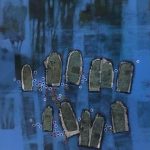

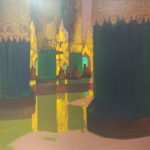

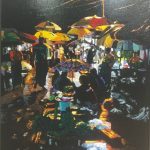
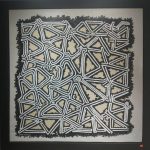

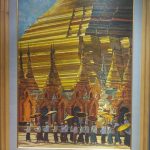
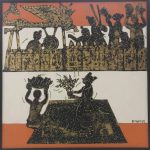



No comments:
Post a Comment
Note: Only a member of this blog may post a comment.